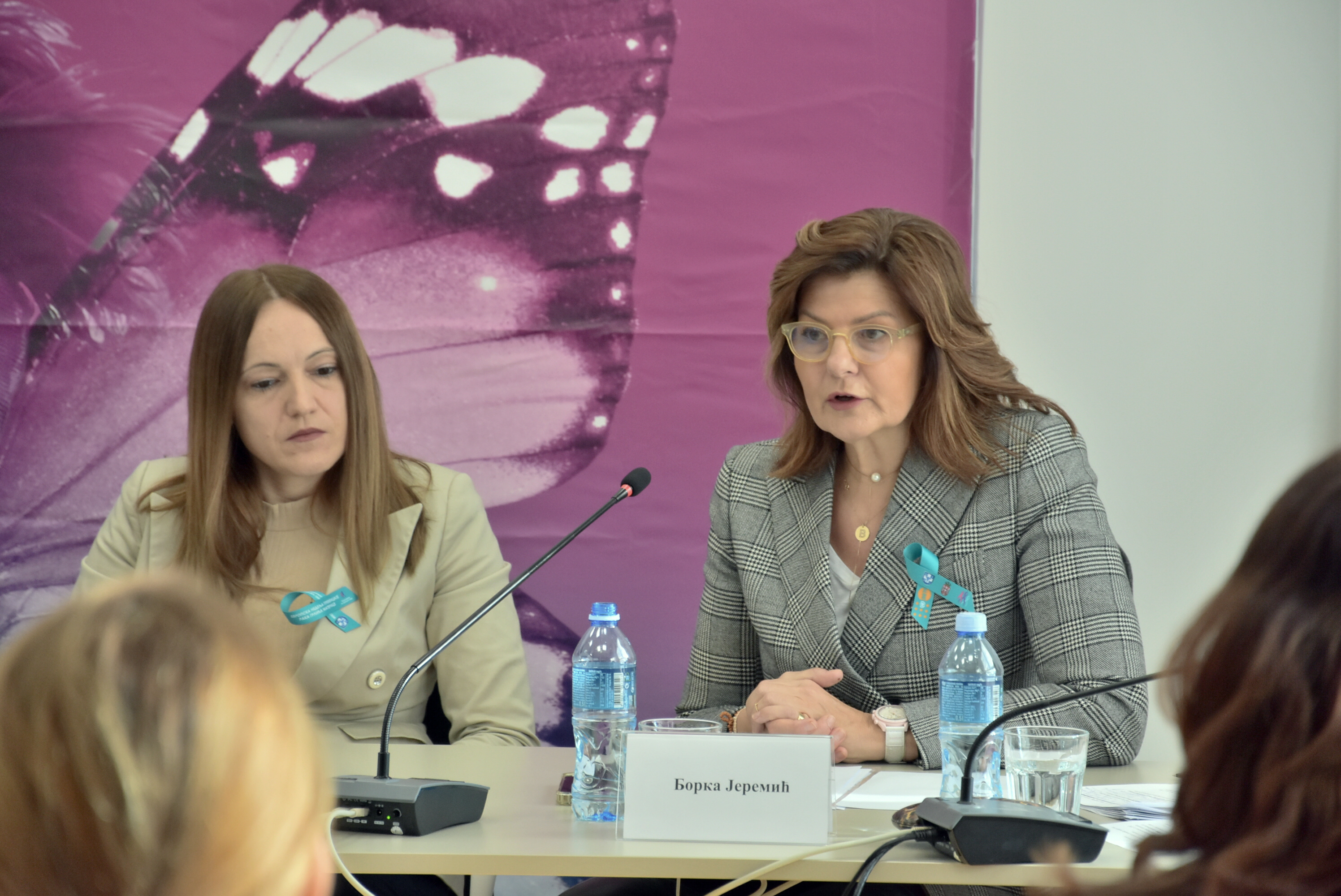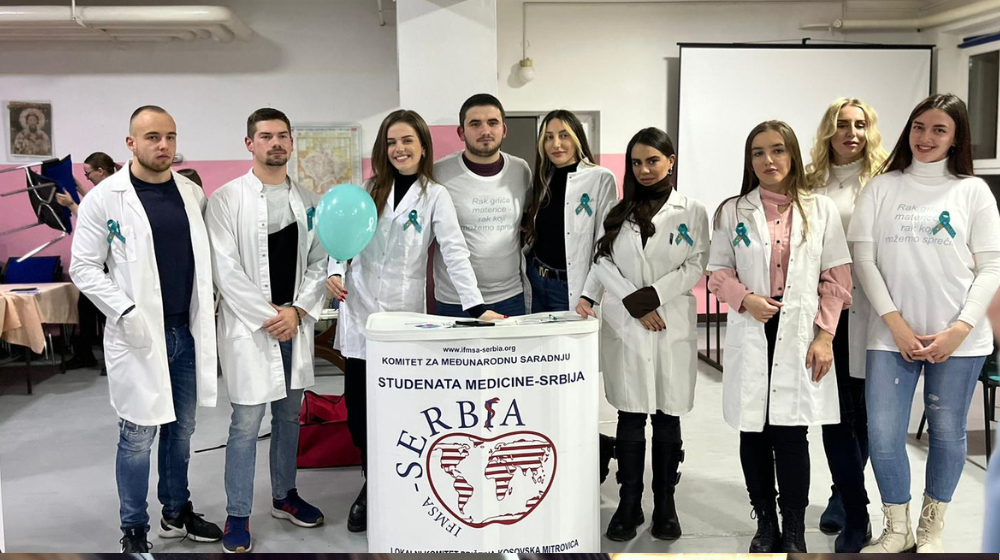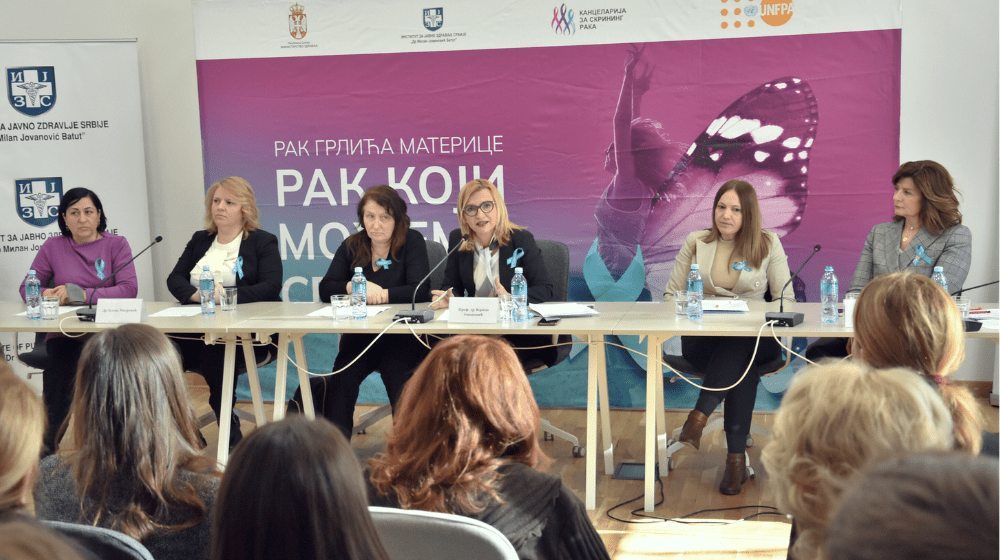This year, the European Cervical Cancer Prevention Week was marked under the slogan "Together against cervical cancer"! The United Nations Population Fund in Serbia traditionally celebrates this week together with the Institute for Public Health "Dr. Milan Jovanović - Batut", the Ministry of Health, and the International Federation of Medical Student Associations - IFMSA Serbia.
Based on the estimated rates of morbidity and mortality from cervical cancer in the European Information System (ECIS), Serbia is still in the group of countries with high morbidity and mortality rates in Europe. According to the data from the Cancer Registry of the Institute for Public Health of Serbia "Dr. Milan Jovanović Batut", on average, 1100 newly diagnosed women are registered in Serbia every year, and 447 women lose their lives. The latest data show that cervical cancer occurs more often at the age of 35, but the highest age-specific incidence rates are from 55 to 59 years of age.

The beginning of the European Cervical Cancer Prevention Week was marked by a press conference on Monday, January 22, attended by Prof. Dr. Verica Jovanović, director of the Institute for Public Health of Serbia "Dr. Milan Jovanović Batut", representatives of the Ministry of Health, the Republic Health Insurance Fund, the United Nations Population Fund in Serbia, the Association for the Fight against Ovarian and Cervical Cancer "Speak up", and the Health Centre "Dr. Simo Milošević". The speakers emphasized the importance of preventive measures, with the key message that cervical cancer is a malignant disease that can be prevented.
Cervical cancer continues to be a public health problem both globally and in the region of Eastern Europe and Central Asia, to which our country belongs. That is why, since 2014, UNFPA has continuously supported countries in the region in strengthening programs to prevent and control this disease. In 2021, the UNFPA Regional Office launched the Regional Alliance for the Prevention of Cervical Cancer in Eastern Europe and Central Asia as a platform for exchanging experience and knowledge and a coordination mechanism for improving cooperation and professional access in three key areas of prevention.

In addition to these traditional ways of marking, the United Nations Population Fund this year also had a social media campaign to raise awareness about prevention and HPV vaccination. Within the campaign, there is a moving story of Violeta Ivković, a writer who survived cervical cancer and who today has no doubts about the HPV vaccination of her grandchildren.
Public actions, carried out by medical students, continued until Friday, January 26. Public actions were carried out by 50 volunteers in Belgrade, Niš, and Kosovska Mitrovica, reaching more than 500 young people. This year, a special focus was placed on high school students who had the opportunity to improve their understanding of the importance and availability of the HPV vaccine in our country.
For UNFPA, the leading United Nations agency for sexual and reproductive health, improving the prevention of cervical cancer is one of the most important priorities. With regular preventive examinations and adequate vaccination, the lives of many women can be saved.



